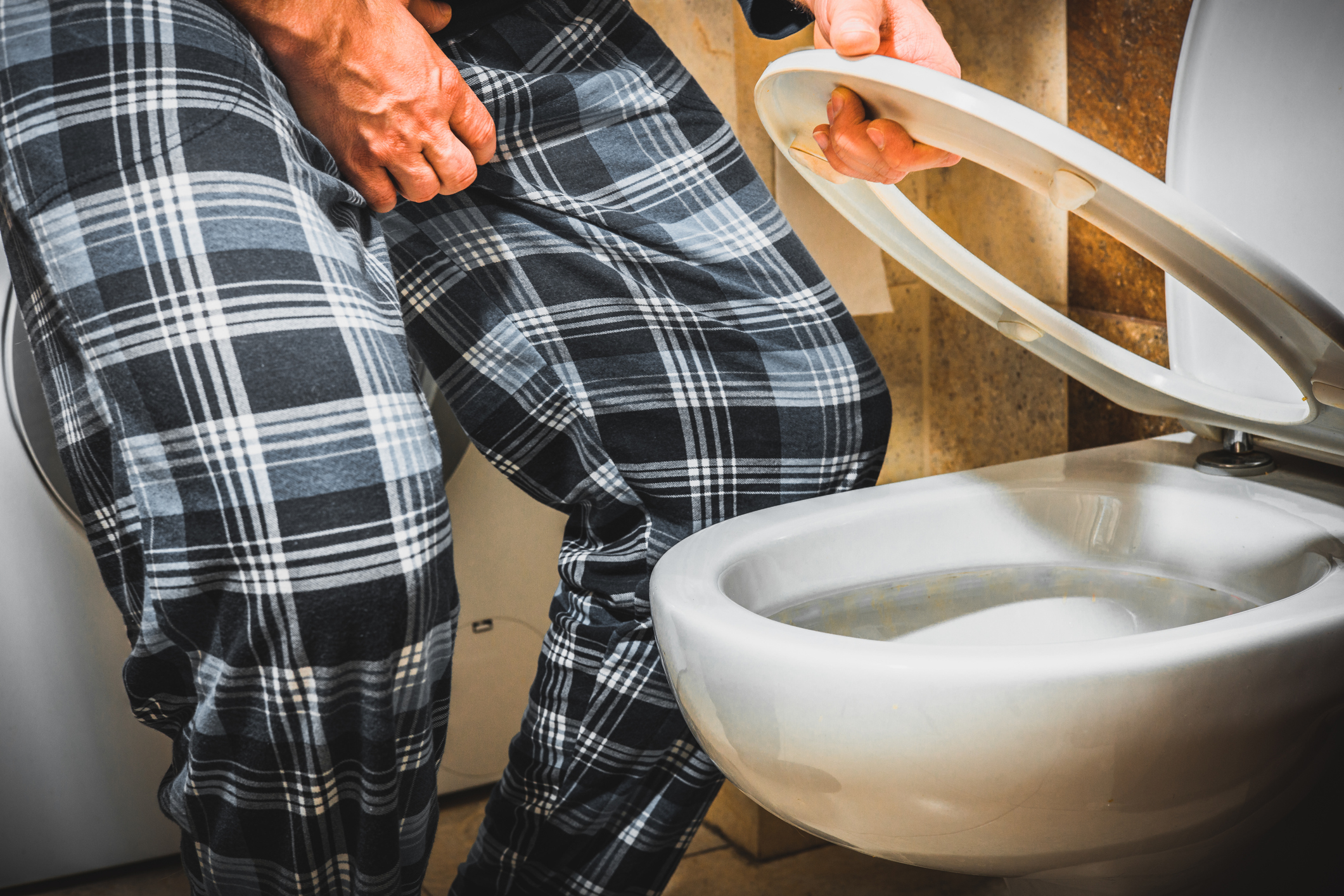Get Easy Health Digest™ in your inbox and don’t miss a thing when you subscribe today. Plus, get the free bonus report, Mother Nature’s Tips, Tricks and Remedies for Cholesterol, Blood Pressure & Blood Sugar as my way of saying welcome to the community!
The other reason some men ‘go’ all night

When men over a certain age start making multiple nightly bathroom trips, two things usually enter their minds: Benign prostatic hyperplasia (BPH), also known as enlarged prostate, and that other serious prostate problem no man wants to face.
It’s just human nature to assume the worst. And now that anytime any of us has a symptom we’re worried about, we become internet doctors.
Googling “men, frequent urination” tells you that it’s caused by “diseases that affect the urinary tract at any level.” In addition to enlarged prostate and kidney stones, it throws diabetes into the mix.
What it won’t tell you is that for one in seven men, the reason they trot from bedroom to bathroom going all night or give up their golf game for fear of bladder leakage, is a non-threatening, albeit annoying, slightly embarrassing condition known simply as overactive bladder.
It’s annoying but not scary
First things first. Every man should get annual prostate screenings after the age of 45 or 50. Because your prostate is in close proximity to your bladder, if it’s enlarged, for reasons benign or not (which your doctor can help determine) it can put pressure on your bladder.
So if you’ve all checked out in that department and you’re still going all night, it’s a good bet you simply have an overactive bladder.
Overactive bladder is a kind of incontinence. You may think you have control of your bladder, but the truth is it’s calling the shots.
There are different kinds of urinary incontinence, including stress incontinence (like when lifting or coughing puts pressure on your bladder); urge incontinence is when you feel an overwhelming urge to urinate; overflow incontinence is when your bladder isn’t completely emptying; and mixed incontinence is a combo of stress and urge incontinence.
If you haven’t already guessed, urge incontinence is the type most associated with overactive bladder, and is behind that compelling need to get to a bathroom pronto at any time of day or night. Though to be honest, they can all come into play to make your bladder overactive.
What causes overactive bladder
In case you’re feeling self-conscious about your overactive bladder, you should know that more than 80 percent of people in their 60s deal with excessive nighttime urination — including women.
Sometimes the contributing factors to the condition may differ between the sexes, but basically, a bladder is a bladder — and if the muscles that control how it operates become weak, it doesn’t discriminate.
For men, once an obvious condition like enlarged prostate is ruled out, it’s hard to pin down an exact reason your bladder muscles weakened. But it’s not rocket science to realize that muscle in general weakens with age.
Have you suddenly started hitting the gym? Your glutes may not be the only muscles feeling the strain.
Are you still drinking eight glasses of water a day, even though your activity level has tapered off?
Are sodas, juice, coffee, tea or other acidic drinks (including alcohol) and foods a big part of your diet? They’re triggers to irritating your overactive bladder.
Calming your overactive bladder
Start with your answers to the questions I just posed…
If you’re working out but ignoring your pelvic muscles, your setting yourself up for trouble. Add in Kegel exercises. This may sound crass, but the muscles you’ll want to focus on are the same muscles you’d use to stop yourself from passing gas. Yep, those. Just tense, hold and release.
Next, cut down on water or any other liquid, especially the trigger ones, several hours before bedtime.
Now, there are medications your doctor can prescribe for your overactive bladder. But they can be concerning…
Anticholinergics are a commonly prescribed group of medications also called antispasmodics. They block the neurotransmitter acetylcholine from binding to receptors on nerve cells, essentially relaxing the bladder. But acetylcholine is critical for memory function. That’s why using anticholinergics can put people at higher risk for developing mild cognitive impairment, which is considered a precursor to dementia.
No worries, Mother Nature is armed and ready to help you take on your overactive bladder…
- Research has shown pumpkin seed extract can have a positive effect on these annoying symptoms. One such study of 45 men and women who took the extract daily for 12 weeks experienced decreased daytime and nighttime frequency along with decreased urgency.
- Soy germ isoflavones help men (and women) maintain testosterone levels. Testosterone helps to regulate your sex drive, brain function, bone mass, muscle mass and strength — including the strength of the pelvic floor — and that’s why testosterone levels for men and women need to remain strong.
These “bladder supporters” have decades of credibility behind their effects on bladder health.
Just imagine the restful sleep you’ll enjoy when you’re not forced to get up multiple times during the night to pee. No one’s got time for that.
Editor’s note: Did you know that when you take your body from acid to alkaline you can boost your energy, lose weight, soothe digestion, avoid illness and achieve wellness? Click here to discover The Alkaline Secret to Ultimate Vitality and revive your life today!
Sources:
The Burden of Overactive Bladder on US Public Health — Curr Bladder Dysfunction Rep













